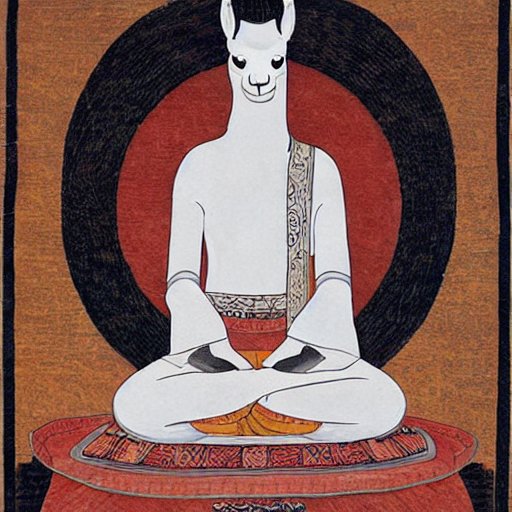So at work today, the discussion of household heating and gas/electricity bills came up (entering winter Down Under), and I commented that we have our central heating set to 14 Celsius (approx 57 Freedoms) overnight, and off during the day/evening. We find that 14 is quite comfortable under a fluffy doona/duvet. I was warmly mocked (well natured), and informed that something closer to 24C (75F) is appropriate, day and night.
Surely not… right?
If I set my winter evening thermostat to 14C my wife would have my head on a spike in the front lawn. Police be damned.
We keep it at 22C as a compromise during the day and 19 at night (since we sleep better in the cold).
We have our thermostat set to 63°F in the winter. We’ll go up to 67°F or so if there’s a storm bad enough that power loss is possible.
In the summer, we have our air conditioners set to 70°F.
Interesting idea, banking some heat ahead of a storm. We regularly lose power here, but not for any significant length of time (minutes, not hours or days)
We rarely lose power also, but it’s happened and we’d rather have the house warmer just in case.
The last time we lost heat was due to a problem with our heater. It happened during a particularly cold day and our house temperature was dipping quickly. We have a little parakeet (Dewey) who can’t handle cold weather so we had to get someone to fix it quickly and needed to put heaters in his room to keep the temperature up in there.
Thankfully, they fixed it relatively quickly and Dewey was fine.
It is summer here, so our night temp is set to 21C and daytime temp is set to 24C. If we’re away, the AC will turn off.
In winter, I think we keep the house at 18C at night and maybe 19-20C during the day. Our eco mode minimum is set to 15C so the pipes don’t freeze.
I also prefer cooler, but we set our temps in a way to save on our electric bill.
I’m in Canada and we definitely couldn’t just turn off our furnace in the winter - things start exploding when it is -30C or lower.
18C . We live in a condo building that is well insulated so setting it any lower wouldn’t help. I agree, it’s preferable to sleep when it’s cooler. 24C in winter is insane - if you’re cold just put on a jersey or a fleece.
24C, that’s insane!
During winter we try to keep the daytime temperature around 20-21C in the rooms we use the most, and a couple of degrees cooler in other rooms. We find it important to not have a too large temperature difference between rooms in order to avoid mold growing.
During nighttime we set the thermostats to 16-17C.
24 seems insane to me, that is way beyond uncomfortably warm. At night I’m pretty sure that’s just unhealthy.
I tend to keep temperature around 16-18 degrees celsius in the winter during the day, never had a thermostat that allowed setting a target temp so it fluctuates. 16 is alright with double or thick socks and a sweater even when i sit around at my pc. At night I just turn off the heat and open the window, it gets cold but it’s comfortable in a blanket.
I live offgrid in a campervan and do not have HVAC in the normal sense. I follow mild weather, aiming for daily highs of 65-70deg F. Because I camp in arid regions this usually means overnight lows of 35-45F. I try to avoid overnight freezes for comfort and to protect my water system.
My roof vent is set to 65F (comes on then and tries to hold that temp). The LiFePO4 battery bank is warmed to 50F. At night I use an electric blanket and dogbuddy to stay warm if needed.
what you’re doing is what I want to do - do you have any suggestions for links to/communities on lemmy or other federated platforms? liked vandwellers back on reddit a lot but cant find something similar here.
my rig is a 1987 Ford/Grumman Kabmaster, it’s been in the shop for a while now.
I set temp to 18C when at home during the day, and 16/17C when away or night.
Bad insulation (empty air…), so if I lower too much it take hours to heat up again.Ahh yes, we also suffer from a lack of insulation. Empty ceiling and walls. The 50s was a pretty relaxed era for Australian housing.
It’s a house from the early 70s in France.
There was almost no insulation. First rules to improve that started around 1974.How does it work in Australia? Does gouv try to help people to improve that in old houses?
I guess it would be great for summer as I think it’s pretty warm there.I don’t believe the government has any running initiatives to improve energy ratings on old houses, but there are certainly standards for new builds like you would have today. Generally speaking, because the summer sun disproportionately heats up our metal roof (and our ceiling cavity is not insulated), it will get to around 2-3 degrees hotter inside than it is outside, if no climate control is used.
The advantage on a sunny winter day, is that it can be 10 degrees outside, and 17 inside if we’re lucky :) (but of course that heat vanishes the moment the sun goes behind the trees.)
Hotter inside than outside must be a nightmare especially to sleep.
I manage to keep temperature around 23/24 during summer and exceptionality 26/27 during heat wave. But I don’t have AC.It’s a bit more difficult on winter when the max temperature of the day is 1-2 degrees and there is no sun. Radiators need work frequently to keep 18 degrees.
I wish we would have more sunny winter days.I’m curious, what is the construction of an average 70s home in your region?
Traditional houses from the 70s are usually a basement and the house upstairs.
Basement is often half or totally underground.
Then the wall are made with cinder blocks, empty air and bricks.
There is chimney (not sure the term in English), so you can heat with wood, but most of the time there is central heating with Gaz or Fuel to replace or in complement.How is it in your country ?
In the winter, I’ll accept 23C anything colder and I catch a cold.





